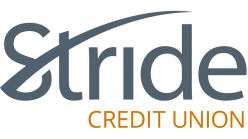
When it comes to our new economic reality, we look at strategies to help you better understand, manage and consolidate debt in times of financial uncertainty.
At a Glance
- Understanding your financial situation
- Qualifying for a consolidation loan
- Managing debt in the time of Covid-19
Understanding your financial situation
If you are struggling with debt, it’s important to know that you can do something about it. Here are some suggestions to help you understand your financial situation and set a course for recovery.
Know how you got there in the first place
When you find yourself in more debt than you feel comfortable with, the first step is to understand why you are in your current situation. Perhaps an external event has had an impact on your finances—such as a lost job or a new expense like daycare or school tuition—or perhaps you weren’t aware of your household’s spending habits.
Whatever the reason for your current circumstances, getting out of debt means knowing where your money comes from and goes to. Not all spending habits are bad, but two to avoid are spending more than you earn and impulse buying.
Look at your options
There is no one-size-fits-all method for consolidating debt, but we’ll focus on three options.
Balance transfers: This involves moving all your credit card debt to a single new credit card, often at a greatly reduced rate. This option may seem attractive in the short term, but upfront fees may be high and the promotional rate may disappear after six months. Credit card companies offer low introductory rates because they’ll end up earning more on the high interest charged over time. This is the easiest but most expensive option because credit card companies are happy to approve people who are willing to pay the higher interest rates. The length of time it takes to pay off a credit card balance is indefinite.
Lines of credit: This option lets you transfer your debts to a single line of credit that typically charges a significantly lower interest rate than a new credit card. You must apply and be approved for a line of credit by your credit union, and your interest rate will be influenced by your credit rating (see next section). You make a set minimum monthly payment, but you can also apply a lump sum to the balance at any time. The length of time it takes to pay off a line of credit is indefinite.
Consolidation loans: This is a secured or an unsecured loan in which you consolidate your existing debts and pay them down by making single monthly payments. Like the line of credit, you must apply and be approved for a consolidation loan. Your monthly payment will cover both principal and interest, and the length of time to pay it off will be set, often five years or fewer. Interest rates on loans are generally much lower than on credit cards.
Limit your use of credit
When you choose to consolidate credit card debt by moving the balances to another single card, a line of credit or a loan, you free up thousands of dollars in credit on the cards you’ve paid off. If you’re not careful, you might turn to those cards again and rack up credit balances, leaving you in worse shape than before you consolidated your initial debts. The wisest thing to do is cut up your old credit cards once you’ve transferred the balances.
Qualifying for a consolidation loan
You should consider five things, if you’re thinking of applying for a consolidation loan:
- Collateral: You need collateral—such as a vehicle, home equity, a regular pay cheque, cash, savings or investments—to secure a loan. This gives your lender security and minimizes their risk.
- Credit score: Your creditworthiness is based on your payment history, size of amounts you owe, credit history length, types of credit, and how often you apply for new credit. The Credit Counselling Society has helpful information on this subject.
- Credit history: Maybe you’re new to Canada and don’t have a credit history here. Or, you might not like credit cards and rarely use them. You need to have and use a credit card—and pay it off regularly—to build a credit history for yourself, so lenders will know you can use credit responsibly over time.
- Income: You need a source of income to pay off your debts or to qualify for a consolidation loan. You could just make minimum payments on your credit card balance, but those are set so low that it might take decades to pay it off.
- TDS Ratio: Your Total Debt Service (TDS) ratio is the percentage of your income needed to cover all of your debts. Your regular monthly debts may include mortgage, car, credit card, alimony and loan payments. In Canada, you can generally borrow up to 40% of your gross annual income.
Managing debt in the time of Covid-19
The appearance of a global pandemic is certainly an external factor that has affected everyone to a greater or lesser degree. For some, debt may already be a struggle that has become even more challenging with the onset of Covid-19. For others, new events may require debt consolidation to address cash flow or unforeseen expenses.
Whatever your circumstances, if you find yourself with an uncomfortable amount of debt or with financial uncertainty, a consolidation loan or line of credit may be a helpful solution for you. Talk to us today about how we can help you navigate financial debt or uncertainty. We’ll help you figure out your best path forward.
If you liked this article, you might want to read
How to Prepare for Financial Uncertainty
